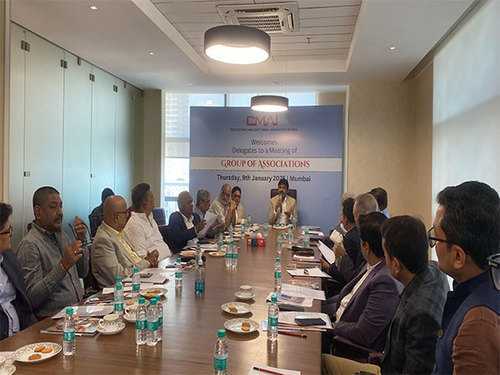
New Delhi [India], January 11 (ANI): The Clothing Manufacturers Association of India (CMAI), along with 14 prominent garment trade associations from across India, came together under the banner of "One Industry, One Voice."
In a landmark meeting, they passed a unanimous resolution urging the Group of Ministers (GoM) to abandon its proposal to modify Goods and Services Tax (GST) rates in the garment sector and retain the existing structure of 5 per cent and 12 per cent.
According to CMAI, this collaborative effort marked the first time so many leading associations joined forces to address critical issues facing the industry.
The meeting also saw the development of five key policy recommendations aimed at fostering sustainable growth, securing long-term stability, and addressing pressing challenges within the garment sector.
The first and foremost recommendation is to abandon the proposed GST rate revision. The associations emphasized the potential negative consequences of such changes, including disruptions in manufacturing, pricing instability, and weakened consumer demand.
They warned that these revisions could push businesses towards informal channels, harm affordability, and destabilize employment, particularly in festive and wedding-related apparel segments.
Another significant proposal is the introduction of a tailored Production Linked Incentive (PLI) scheme specifically for the garment sector.
The associations noted that the existing PLI framework is more suited to the textile industry and does not align with the operational scale and investment capacities of garment manufacturers.
A sector-specific PLI scheme would better reflect the unique characteristics of the garment industry and encourage greater participation.
The associations also called for protecting MSMEs during insolvency proceedings. They urged the government to classify MSMEs as secured creditors, ensuring fair compensation during bankruptcy cases.
This measure, they argued, would boost MSME confidence in dealing with large corporations and contribute to increased trade volumes and tax collections.
Rectifying Section 43B(h) of the Income Tax Act is another critical recommendation. The associations pointed out that the provision has inadvertently hurt smaller manufacturers, as large buyers prefer purchasing from bigger manufacturers.
They suggested eliminating this provision or gradually reducing payment periods to ensure equal growth opportunities across Micro, Small, and Medium Enterprises (MSMEs).
Finally, the associations recommended introducing an interest subsidy for the domestic garment sector. Unlike the export sector, which already benefits from such subsidies, the domestic garment industry faces unique challenges that could be alleviated through targeted financial support. This assistance would further unlock the sector's growth potential.
Speaking about the meeting, Santosh Katariya, President of CMAI, stated, "We are glad that all the leading associations have come together under Group of Associations to address these concerns and create a unified voice for the industry. As CMAI, we are committed to presenting comprehensive recommendations to the Government on critical matters such as GST, Supply Chain Disruptions, Rising Input Costs and the need for Policy reforms. These are essential to ensure long-term growth and sustainability of the Apparel sector."
Rahul Mehta, Chief Mentor of CMAI, echoed similar sentiments, saying, "The Apparel industry requires policies that nurture its growth and ensure a balanced approach that fosters both immediate stability and long-term sustainability. A supportive policy framework will be vital in unlocking the sector's full potential and translating positive consumer trends into tangible, sustainable growth for the industry."
The apparel industry, valued at Rs5.4 lakh crore, is a cornerstone of the Indian economy, providing employment to approximately 39 million people, including 16 million in domestic production. Despite demonstrating impressive growth and resilience, the sector has immense potential for further expansion. With targeted support and reforms, the industry can unlock new opportunities for sustainable development and long-term stability.
The meeting was attended by representatives from several prominent trade associations, including the Tirupur Exporters Association, Bangalore Apparel Manufacturers Association, and Federation of Surat Textile Traders Association, among others. (ANI)